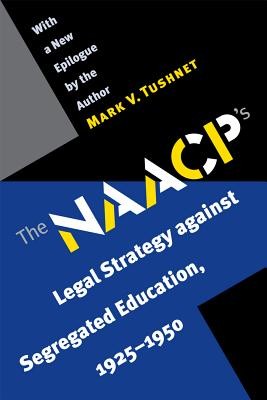
- We will send in 10–14 business days.
- Author: Mark V Tushnet
- Publisher: University of North Carolina Press
- ISBN-10: 0807855952
- ISBN-13: 9780807855959
- Format: 15.9 x 22.8 x 1.7 cm, softcover
- Language: English
- SAVE -10% with code: EXTRA
The NAACP's Legal Strategy Against Segregated Education, 1925-1950 (e-book) (used book) | bookbook.eu
Reviews
Description
The NAACP's fight against segregated education--the first public interest litigation campaign--culminated in the 1954 Brown decision. While touching on the general social, political, and economic climate in which the NAACP acted, Mark V. Tushnet emphasizes the internal workings of the organization as revealed in its own documents. He argues that the dedication and the political and legal skills of staff members such as Walter White, Charles Hamilton Houston, and Thurgood Marshall were responsible for the ultimate success of public interest law. This edition contains a new epilogue by the author that addresses general questions of litigation strategy, the persistent question of whether the Brown decision mattered, and the legacy of Brown through the Burger and Rehnquist courts.
EXTRA 10 % discount with code: EXTRA
The promotion ends in 17d.10:46:02
The discount code is valid when purchasing from 10 €. Discounts do not stack.
- Author: Mark V Tushnet
- Publisher: University of North Carolina Press
- ISBN-10: 0807855952
- ISBN-13: 9780807855959
- Format: 15.9 x 22.8 x 1.7 cm, softcover
- Language: English English
The NAACP's fight against segregated education--the first public interest litigation campaign--culminated in the 1954 Brown decision. While touching on the general social, political, and economic climate in which the NAACP acted, Mark V. Tushnet emphasizes the internal workings of the organization as revealed in its own documents. He argues that the dedication and the political and legal skills of staff members such as Walter White, Charles Hamilton Houston, and Thurgood Marshall were responsible for the ultimate success of public interest law. This edition contains a new epilogue by the author that addresses general questions of litigation strategy, the persistent question of whether the Brown decision mattered, and the legacy of Brown through the Burger and Rehnquist courts.


Reviews